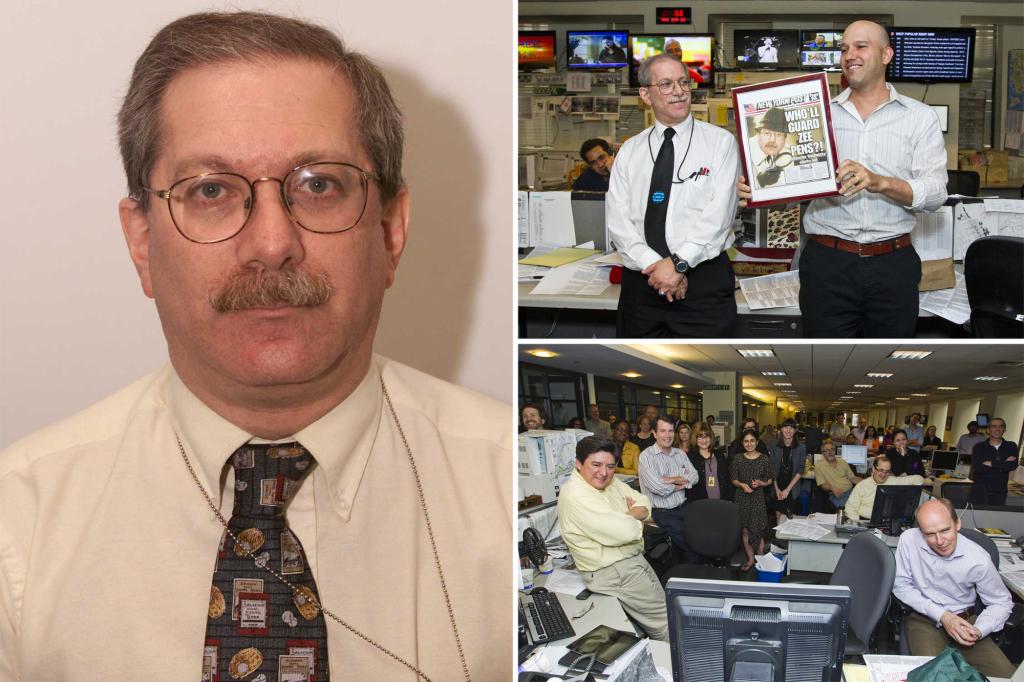Summarize and humanize this content to 2000 words in 6 paragraphs in English
Myron Rushetzky — The Post’s beloved meticulous, sometimes maddening newsroom support-staff supervisor who churned out generations of ace copy kids — died peacefully Friday in the city he loved.
Rushetzky, 73, was known as the gatekeeper of the City Desk — answering phones and announcing callers in his thick Brooklyn accent — over a career that spanned a mind-boggling 40 years.
“He loved The Post,’’ said Susan Mulcahy, who started as a copy girl under Rushetzky at the paper in 1978 and went on to work for its famous Page Six gossip gang.
Mulcahy, who recently co-wrote the book “Paper of Wreckage’’ about The Post, which was dedicated to Rushetzky, said he “was an important contact to make in the City Room because he knew everyone and everybody.
“When you went away on a trip, he’d always demand you bring him back a shirt,’’ she recalled.
He kept a list that “on one side [had] people he loaned money to — and a number of people still owe him money,’’ Mulcahy said.
“On the other side of the list are all the people who brought him T-shirts. I think I brought him three or four shirts over the years.”
Stephen Lynch, editor of The Post’s print edition, said, “Myron mentored an entire generation of Post reporters.
“He would take a ‘runner,’ help them, mold them, cajole them — then would advocate fiercely for them to be given full-time jobs,’’ Lynch said of Rushetzky’s former underlings — who include now-New York Times White House Correspondent Maggie Haberman.
“Nothing made him prouder than watching one of his team graduate to the News Desk, and nothing made the paper better.”
Post Deputy News Copy Chief Milton Goldstein started out as a copy kid along with Rushetzky in 1973 — and was by his side when he died at Manhattan’s New York University Langone of the glandular cancer adenocarcinoma.
“I sat down, and I’m sharpening pencils, and Myron comes up to me and introduces himself, and 52 years later, here we are,’’ Goldstein said.
“Did you know he had a degree in civil engineering from the City College of New York?” the longtime Postie said.
He said Rushetzky was inspired to go to school for engineering because he grew up in Bath Beach, Brooklyn — watching as Robert Moses built the Verrazzano-Narrows Bridge nearby.
Rushetzky was also a sports lover and became the editor of the section for his college newspaper, the Campus, Goldstein said.
“He never got a job with an engineering firm,’’ Goldstein said. “He fell in love with newspapers.’’
Rushetzky kept his copy-kid crew in close check at The Post — sometimes rubbing editors the wrong way when they wanted to poach them to run on a story while he tried to run the City Desk phone.
But that was only to a point — he also loved to see them succeed, former coworkers said.
Rushetzky was diagnosed with cancer earlier this year but did not want to make a big deal about it and have it widely shared, Mulcahy said.
Goldstein noted that former Post Editor Ken Chandler and ex-Managing Editor Joe Robinowitz visited Rushetzky on Tuesday, three days before he died — “and it made Myron’s day, that they cared enough about a desk assistant.
“Myron was part of the fabric of The Post,’’ Goldstein said.
He also was the heart of “Post Nation,’’ a tremendously long list of former and current outlet employees whom he kept together with an e-mail chain — and birthday cards every year, including to their kids.
The tributes to its leader poured in Friday, with one calling Rushetzsky “a true Post legend.’’
“Hopefully, Post Nation will survive, but without Myron, it will not be the same,’’ Mulcahy wrote in an e-mail to the masses.
As for Rushetzky, he already wrote his epitaph long ago — signing off with the quote from Washington Post columnist Mary McGrory on every e-mail:
“I should confess, I have always felt a little sorry for people who didn’t work for newspapers.’’


